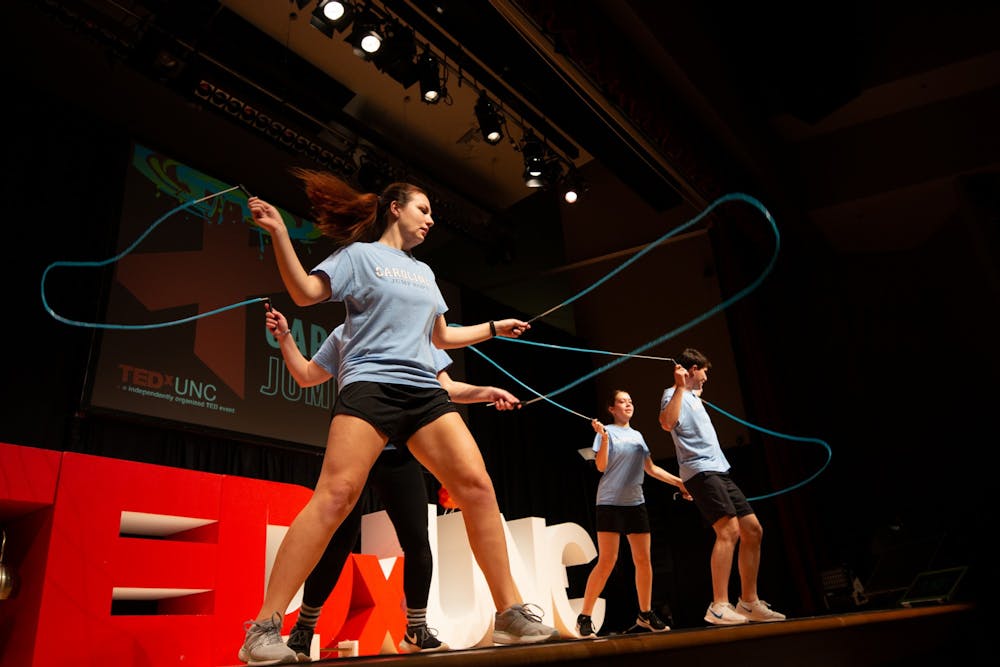Carolina Jump Rope is open to anyone interested in jumping — from those who have experience competing to those who have only watched the 2007 Disney hit film "Jump In!"
Officially founded in 2017, Carolina Jump Rope is an organization centered around performance, competition and community service. Despite COVID-19 making organized practice difficult and competitions few and far between this year, members of the organization said the club still gives them a sense of community.
Due to COVID-19 restrictions, Carolina Jump Rope is currently hosting two practices each week, on Mondays and Wednesdays. Mondays consist of a socially distanced, masked practice outdoors, whereas Wednesday meetings are held via Zoom.
“It’s been a good way to still keep jump roping and in touch with all of the friends and teammates I’ve made during my time at Jump Rope,” senior Nick McDonald said.
With the pandemic leading to cancellations of other performances, practices are focused on learning routines for the club's main competition, the National Collegiate Jump Rope Championship, also called "Summit." This year, members of Carolina Jump Rope said Summit will likely be virtual due to COVID-19 restrictions.
The event was started by two members of the inaugural Carolina Jump Rope club, Graham Booth and Noah Mancuso. Summit is usually held in February and has been hosted by UNC for the past two years.
The competition itself is divided into two divisions: novice, for those who just started jumping in college, and experienced, for jumpers with prior experience. At the end of the competition, there is a showcase where all schools perform an individual routine and a collaborative number where members of each school participate.
“The showcase is a really cool way to get to see what everyone is working on and what all everyone can come up with that’s unique and fun,” junior Carly Brockman said.
In addition to competitive routines, Carolina Jump Rope puts on performances throughout campus, such as Fall Fest. But these demonstrations aren't permitted due to the pandemic.




